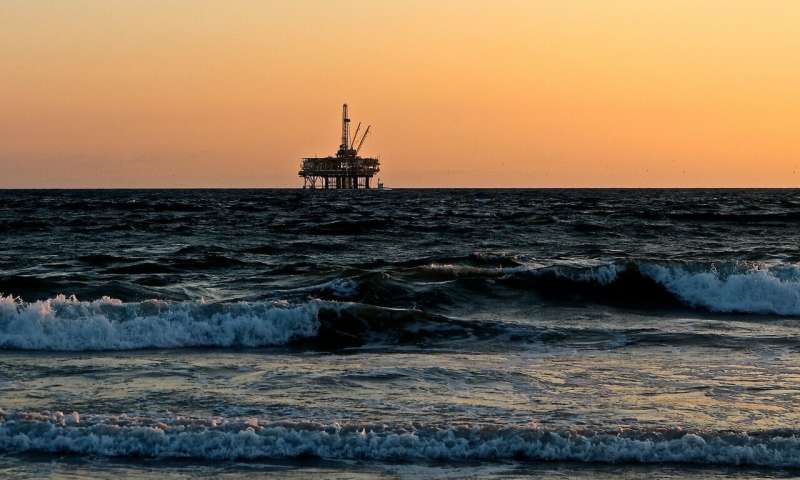This article has been reviewed according to Science X's editorial process and policies. Editors have highlighted the following attributes while ensuring the content's credibility:
fact-checked
trusted source
proofread
Decommissioned offshore structures could offer only limited ecological benefits, analysis of studies suggests

Decommissioned offshore structures offer limited long-term ecological benefits if they are simply left in the ocean to serve as artificial reefs, a new study suggests.
The research, published in the journal Nature Sustainability, saw researchers carrying out a comprehensive analysis of existing studies into the environmental impacts of marine artificial structures—including oil and gas platforms and offshore wind farms—all over the world.
It highlighted that such installations can offer some ecological benefits—including increasing the diversity and abundance of fish species—in areas where the seafloor is mostly comprised of sand.
However, there was limited conclusive evidence that oil and gas platforms and offshore wind farms could provide further substantial benefits if they are left in the sea after being decommissioned.
In particular, the available evidence did not allow the researchers to draw clear conclusions on how the structures compare to natural rocky reefs—a key element in being able to determine whether they can function as artificial reefs.
As a result, they say more detailed investigations are needed into the best way to manage such structures at end-of-life, as repurposing them into artificial reefs may not provide the intended benefits.
The study was carried out by researchers at the University of Plymouth, Plymouth Marine Laboratory and the Center for Environment, Fisheries and Aquaculture Science (Cefas).
They analyzed data from more than 530 scientific studies on the effects of marine artificial structures in the sea. These ranged from oil and gas platforms and offshore wind farms established during the 20th and 21st century to accidental shipwrecks—some of which had lain on the seabed for over 400 years—and purpose-built artificial reefs.
It is particularly timely with global governments and other agencies setting targets of achieving net-zero emissions by 2050 as part of their decarbonization agendas, resulting in the decommissioning of existing offshore platforms and the construction of thousands of new ones.
Dr. Anaëlle Lemasson, Post-Doctoral Research Fellow at the University of Plymouth and the study's lead author, said, "Many of the structures we see in the ocean today were put in place at a time when environmental considerations weren't in people's minds. There were also no legal requirements covering possible environmental impacts, or what might happen to these structures once they reached the end of their useful lives.
"That is certainly changing, and transitions away from fossil fuels mean it is vital we have this debate now. It is also critical that we learn lessons from the past, particularly at a time when increases in ORE installations are likely to result in more artificial structures being sited out at sea."
The research was carried out as part of the Decommissioning—Relative Effects of Alternative Management Strategies (DREAMS) project, a consortium of industry and academics looking at the ecological effects of manmade structures in the North Sea.
It uncovered a considerable amount of research looking at the impact of the structures in situ; however, there was very little research demonstrating the direct effects of decommissioning.
The study's senior author, Dr. Antony Knights, served as Co-Principal Investigator on the DREAMS project at the University of Plymouth. Now based at University College Cork, he added, "This study highlights just some of the challenges facing those working on the decommissioning of offshore structures. With limited existing evidence, it is almost impossible to give a definitive answer as to how best to deal with these platforms and other structures when they reach the end of their lives.
"For the time being, the best solution might be to deal with decommissioning on a case-by-case basis, but it is clearly something that needs addressing so it can be built into future development plans."
More information: A global meta-analysis of ecological effects from offshore marine artificial structures, Nature Sustainability (2024). DOI: 10.1038/s41893-024-01311-z
Provided by University of Plymouth





















